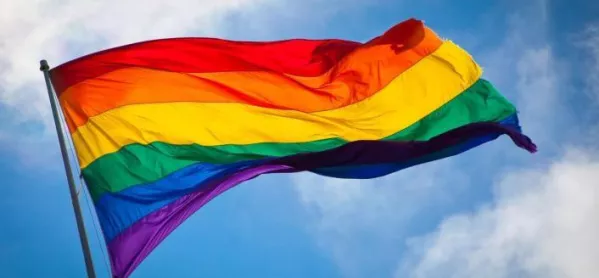Employers should only choose apprenticeship training providers who have a commitment to LGBT+ apprenticeships and who insist on equal standards from endpoint assessment organisations, a new guide says.
Unionlearn, the learning and skills organisation of the TUC, has launched the first LGBT+-inclusive guide to apprenticeships to ensure that LGBT apprentices are fully supported in the workplace.
The publication comes after TUC research published in 2019 showed that LGBT+ workers suffered from “disproportionate and shockingly high levels of sexual harassment” and abuse, ranging from “offensive banter and unwanted comments” to sexual assault and rape.
Unionlearn director Kevin Rowan said that employers could do more to ensure their apprenticeships support LGBT+ people from all backgrounds.
He said: “Apprentices come from a wide range of backgrounds. It’s so important for all of them to feel safe at work and able to grow in their chosen profession.
Supporting LGBT+ apprentices
“Bosses need to have policies in place to make sure their workplaces are inclusive – and they need to ensure those policies are working."
Background: FE leaders challenge ‘silence’ on LGBT inclusion
Opinion: 'Being LGBT in college is getting better'
More: 'Let's create a more tolerant and respectful culture'
According to the guide, employers can help to show that they will provide a good apprenticeship environment by demonstrating that they are positive about employing LGBT+ workers. Ways that employers can signal this include:
- The use of specific anti-discrimination statements that reference both sexual orientation and gender identity in all corporate information, including websites, outreach events and recruitment information.
- Featuring existing LGBT+ employees as role models in apprenticeship recruitment literature, corporate communications and websites.
- Ensuring all public relations communications use language that avoids assuming that everyone is heterosexual and identifies with the gender they were assigned at birth – for example, using words like "them" and "their" in preference to him/her and his/hers, etc.
- Ensuring that application forms are language-checked and do not request information that may reveal a change of gender identity.
- Having robust policies, practices and procedures to eliminate bias and discriminatory practice within the apprentice recruitment and support.
- Only choosing apprentice training providers that can evidence the same level of commitment to LGBT+ apprentices and insisting on equal standards from endpoint assessment organisations.
The guide also stresses the importance of creating an inclusive and supportive working environment and that it is crucial to have a zero-tolerance policy on harassment. The guide says the policy should:
- Be clear about the types of behaviour that constitutes harassment.
- Be firm about its commitment that any complaints of harassment will be taken seriously and investigated, including complaints against third parties such as customers or service-users.
- Provide reassurance that no worker will suffer victimisation for raising concerns.
The report says that for this zero-tolerance approach to work in practice, employers must:
- Include an explicit commitment in their corporate values to a fair and equal workplace, where employees can be open about their sexual orientation and gender identity.
- Raise awareness through staff training. Countering ignorance about sexual orientation and gender identity can help to tackle harassment where colleagues may be genuinely unaware of the impact of their actions on their colleagues or that they constitute harassment.
- Ensure that line managers and HR advisers are fully trained to handle any harassment complaints promptly, sensitively and effectively and prevent victimisation occurring.
The full guide can be found here.




